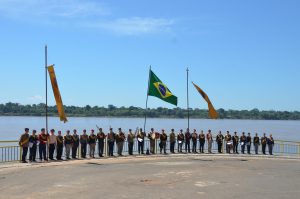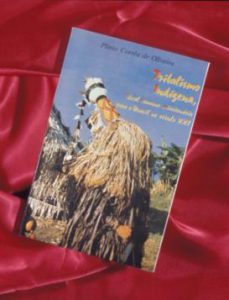By Thomas Drake
I am the Lord your God. You shall have no other gods before me. (Exodus 20,2-3)
A special Synod of Bishops will gather next month in Rome for three weeks, to discuss a “Church with an Amazon face”. Concerned Catholics are increasingly gathering together to understand, study and scrutinize this major event touted by the eco-left as a “paradigm shift” in the Church and in the world.
These 
To get an idea of what they propose, consider these statements from the Synod’s working document (known as the Instrumentum Laboris) “Amazonia: New Paths for the Church and for an Integral Ecology.”
“The life of Amazon communities not yet influenced by Western civilization is reflected in the beliefs and rites regarding the actions of spirits, of the many-named divinity acting with and in the territory, with and in relation to nature. This worldview is captured in the ‘mantra’ of Francis: ‘“everything is connected’” (Laudato Si 16, 91, 117, 138, 240). (Instrumentum Laboris n. 25).”
Such statements are indeed worrisome.
On September 7th , a few dozen men got together at the Tradition, Family, Property – Louisiana center in Lafayette to analyze and discuss the agenda of the Pan-Amazon Synod.
The first session discussion was about the role of key figures of the dying liberation theology movement, which has metastasized into a quasi-mystical ecological and tribal movement: a transition from red to green. The doctrines and praxis of this “new” indigenous theology were already documented and denounced in 1977 by Prof. Plinio Correa de Oliveira in his book, Indian Tribalism: The Communist-Missionary Ideal for Brazil in the Twenty-First Century.
During the second session, TFP members gave a report with video and photos of the recent TFP-inspired caravans in the Amazon regions of Brazil and Peru. The young men of these caravans met with the Amazonian people and Indians in these areas. Most of them opposed to the agenda of this Synod discussing their future. They did not share this proposed utopia modeled after primitive Indian life. After all, 
During the third session, participants reviewed the pantheistic doctrines running through the Synod’s Instrumentam Laboris. They saw how the document denies a personal transcendent God, and professes a God equal to “the various spiritual forces.” All this is grave beyond measure in an official Vatican document.
Cardinal Brandmuller, Cardinal Muller and Cardinal Burke are among the growing number of voices opposing the Marxist-tribal philosophies underpinning this “Amazonia: New Paths for the Church and for an Integral Ecology.”
Soon enough, agendas like this could unleash new waves of disciples of Jean-Jacques Rousseau that will try to change the Church, world, nation and parish. All with an “Amazon face”.
